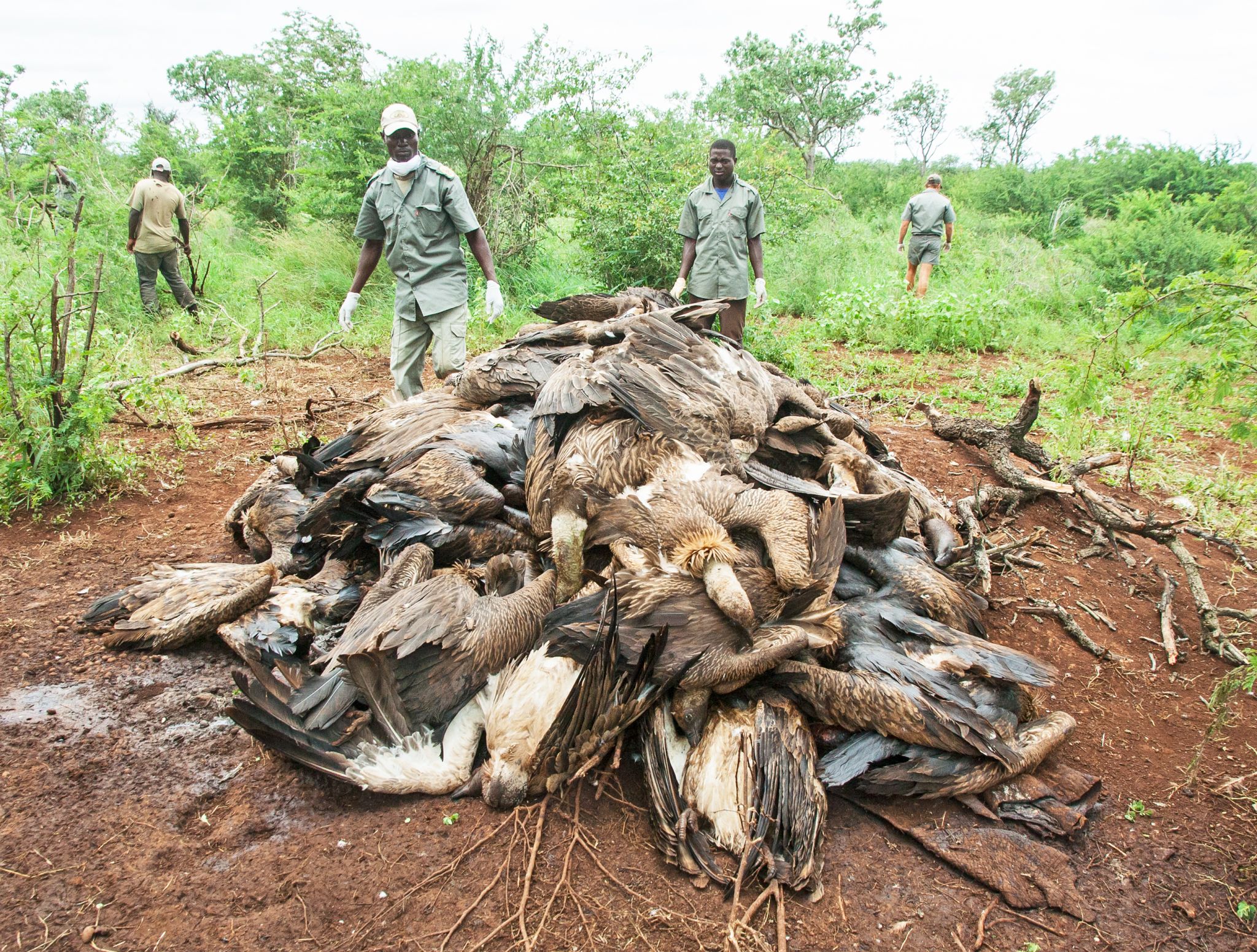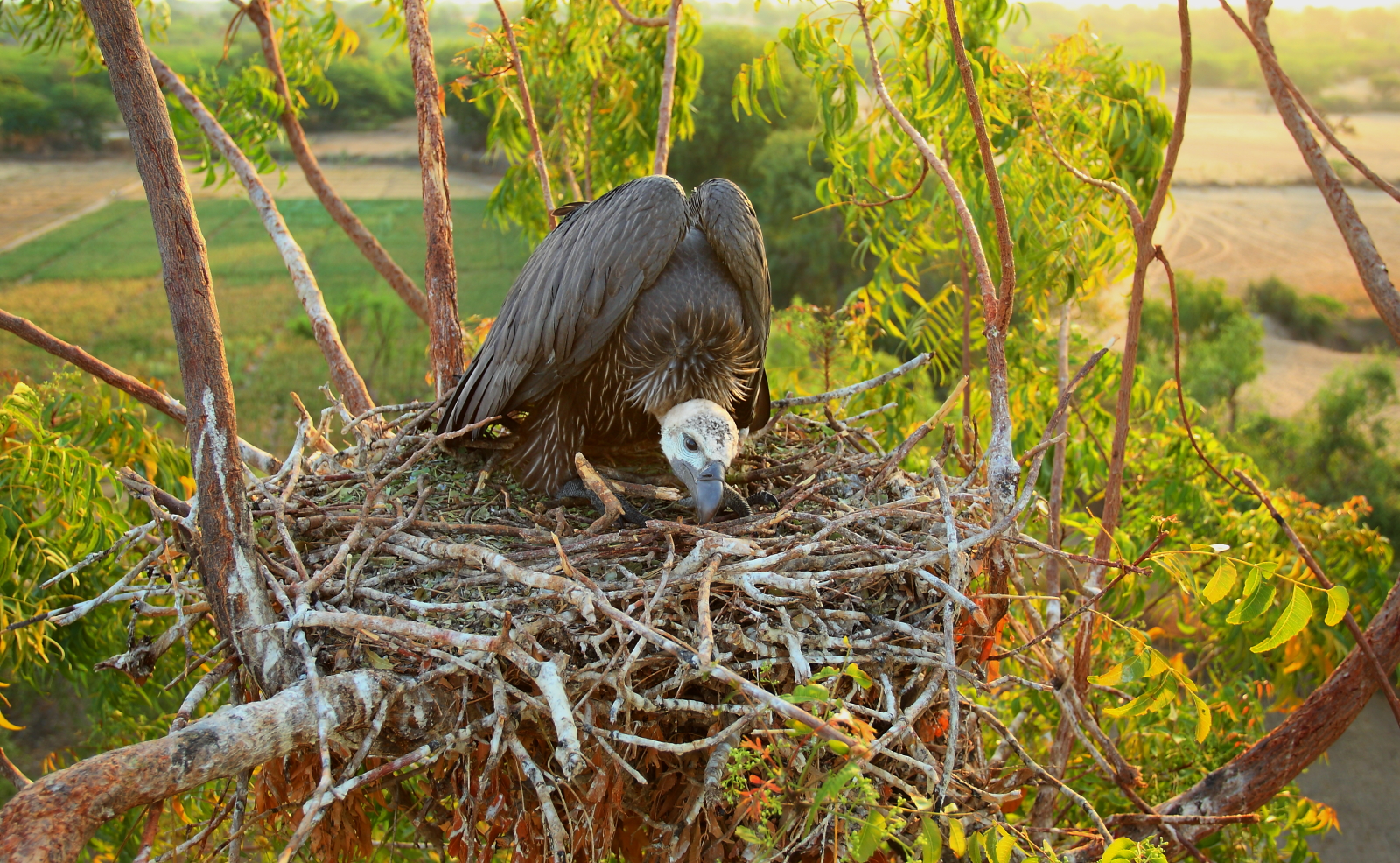A Year of Vulture Conservation and Research
2018 has been a productive year of vulture research and conservation activities for the Trust, so we’ve been looking back at some of the highlights of the year:
- January – Expanded our Poison Response Activity programme through collaboration with the Endangered Wildlife Trust and University of Reading.
- February – Our Poison Response Project Officer responded to a poisoning incident in Mozambique, where ivory poachers targeted vultures with deadly poison. Unfortunately over 100 vultures died, however the team prevented hundreds more vulture deaths through quick and effective decontamination of the poisoning scene.
- March – New paper co-authored by our Head of Conservation and Research, Dr Campbell Murn, published: Spatially explicit poisoning risks affect survival rates of an obligate scavenger. Read the paper.
- April – Our Breeding Centre at Changa Manga in Pakistan successfully fledged two Asian White-backed Vulture chicks.
- April – Campbell and Andre attend the Summit for the Flyways in Abu Dhabi, which brought together some of the world’s greatest scientists, conservationists, donors and influencers to discuss the issues threatening migratory birds.
- May – We are awarded funding to continue our conservation work in Pakistan, maintaining a Vulture Safe Zone, monitoring vulture populations, and raising awareness with local farmers.
- May – Expansion of our Project in Pakistan – we expanded our Pakistan Vulture Restoration Project to include the conservation of Red-headed Vultures and Egyptian Vultures, in addition to the Asian White-backed Vultures and Long-billed Vultures that we already work with.
- June – New drug restrictions a positive development for Asia’s declining vultures – As a result of a letter to the Department of Health for Sindh, the location of our Vulture Safe Zone in Pakistan, the Chief Drug Inspector ordered all regional and district drug inspectors to restrict the use of ketoprofen and aceclofenac. These are both non-steroidal anti-inflammatory drugs, like diclofenac, which pose a major threat to vultures.
- June – Campbell spends some time in South Africa on our Hooded Vulture Ecology Project. Hooded Vultures nest along rivers, and we are investigating the types of habitat and trees they prefer in order to inform our conservation of this charismatic species.
- July – We were proud to receive a silver award from BIAZA for outstanding research in recognition of the work that Dr Campbell Murn, our Head of Conservation and Research, has done on assessing the impact of poisoning on vulture populations and the effect of poison response activities.
- August – We completed Poison Response Training at Conservation Lower Zambezi in Zambia, the 5th training course we have carried out in Zambia, bringing the total number of trained personnel to 1,506.
- September – International Vulture Awareness Day goes off with a bang! We raised over £300, enough for a Poison Response Kit!
- September – Our partners at SAVE release 12 captive-reared Critically Endangered Asian White-backed Vultures in Nepal.
- September – Our Project Officer in South Africa, Andre, rescues an entangled White-backed Vulture caught in a tree in Kruger National Park.
- October – We completed another successful season of fieldwork for our Hooded Vulture Ecology Project.
- October – A team from the Trust visited South Africa to join a group ringing African White-backed Vultures as part of our International Vulture Programme. A total of 158 vultures were ringed!
- November – We raised awareness for vultures on Radio 5 Live!
- November – Sharing our work at the Raptor Research Foundation Annual Meeting – our Head of Conservation and Research, Dr Campbell Murn, spoke about our Poison Response Activities in Southern Africa, and our Project Officer, Andre Botha, chaired the event.
- November –Dr Campbell Murn attends SAVE meeting – SAVE stands for Saving Asia’s Vultures from Extinction and is a consortium of organisations working together to conserve South Asia’s vultures.
- December – Completed another year of tracking White-headed Vultures in Gorongosa National Park, Mozambique.
- December – Asian White-backed Vultures at centre in Pakistan preparing for another breeding season – fingers crossed!




